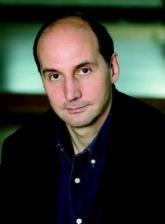News

It’s been almost a year since I published a lengthy critique of the irrationality and arbitrariness of our current maintenance of certification process. I was concerned that there was no clearly articulated, evidence-based justification for these practices.
This is ironic, precisely because the underlying rationale has been an appeal to the importance of practicing evidence-based medicine. The same does not apply to the maintenance of certification (MOC) process, and therefore, what is preached (or mandated?) isn’t practiced. To date, there is still no definitive study proving that MOC and recertification exams improve physician performance.
I made the point that it made no sense that if public safety were really the main goal of recertification, then no one should be “grandfathered” and all diplomates should have to recertify. MOC should be relevant, affordable, and not onerous. I argued that peer review as practiced at Veterans Affairs hospitals and in English-speaking countries was a far more effective way of reviewing our practice and ensuring patient safety.
I also asked why my recent recertification in geriatric psychiatry, passed with flying colors, would be invalidated unless I recertified in general psychiatry. And I wanted to know why the same did not apply to child and adolescent psychiatrists. My exasperation increased to lorazepam-requiring levels, when I entered a bureaucratic labyrinth of fruitless attempts to obtain rational explanations for these anomalies from superiors in the higher echelons of the American Board of Psychiatry and Neurology (ABPN).
Responses, if I got them, were vague and referred to consensus at meetings by nameless committees. I was advised by one correspondent, who claimed to have been at one of the meetings, that there was to be an announcement in one of the newsletters I receive online from the American Association for Geriatric Psychiatry (AAGP). To date, there has been no mention of the issue, and the person who I was told by another person led the discussion could not recall that this topic had ever been discussed. (I have the correspondence to prove this.) He did cheerfully (I think) tell me that he had written both exams and that the process hadn’t been too onerous. I think he might have been trying to tell me that if he could do it without complaining, then so could everyone else.
Then I actually got to meet Dr. Larry R. Faulkner, the ABPN’s CEO, at last year’s ABPN MOC session at the American Psychiatric Association’s annual meeting in Toronto. I felt a touch of nervousness when I introduced myself as “the person who wrote to ask why the requirements were different.” For all I knew, there might have been others, but Dr. Faulkner’s eyebrows rose in a sort of recognition. We shared a joke about how relieved he was that I didn’t appear deranged. I wondered if perhaps he might have been a little disappointed, as at least he’d then have had the option of calling security.
I was able, in my most diplomatic tone – I am after all, a diplomate of the ABPN – to once again pose the vexed question about why it was that child psychiatrists were not required to maintain their certification in general psychiatry as well. This time, Dr. Faulkner did not defer to some anonymous committee at the AAGP, but said the decision was based on the fact that geriatric psychiatrists are more likely to see adult patients than are child psychiatrists. He regarded me with the assurance you’d expect from someone confident that he’d had the last word. I had no idea of the statistics, which I assumed supported his pronouncement. “I see,” I said. Dr. Faulkner smiled again. Game over.
“I’m a child psychiatrist, and I’d say about 40% of my practice is adult psychiatry” said a man next to me who had been listening to our conversation. Dr. Faulkner frowned.
“I’m a geriatric psychiatrist. I’d say about 10% of my practice is adult psychiatry,” I chirped.
Dr. Faulkner frowned again. He looked at his watch.
“Anyway,” he said.
We looked at him. He shrugged.
“Yeah, well what can you do?” he said.
We shrugged.
“Gotta go; nice meeting you,” he said.
“Yeah,” we agreed.
“I guess he gets lots of complaints,” I said to the child psychiatrist.
“Don’t we all,“ he said.
But I digress. Or maybe not. What does this all have to do with MOC? The whole debate on MOC erupted when Dr. Paul Tierstein, a cardiologist in La Jolla, Calif., organized a petition signed by thousands of internists frustrated by increasingly expensive, onerous, and irrelevant requirements by the American Board of Internal Medicine (ABIM). The ABIM leadership ignored its members, shrugging and equivocating and asserting its will. Once the petition was signed and the anger palpable came apologies and backtracking. Then Kurt Eichenwald of Newsweek got hold of the story. He went on to expose financial malfeasance at the ABIM. The diplomates were paying for the executives’ lavish salaries, bonuses, and perks, including a condo, with their hard-earned recertification fees. It didn’t look good.

